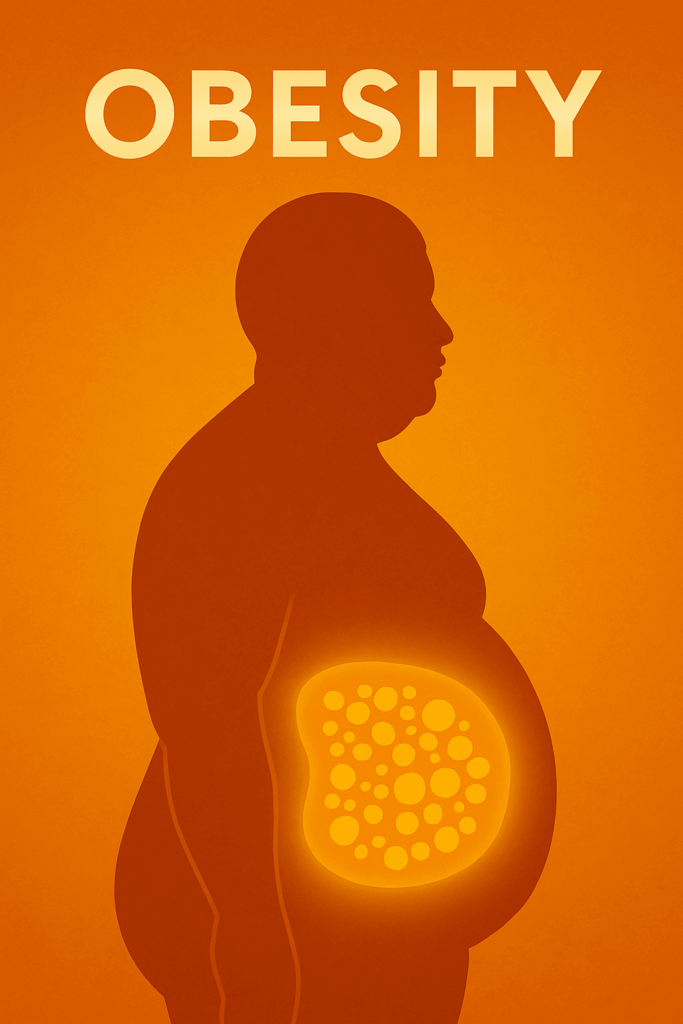Obesity: The Body’s Call for Balance and Simplicity
Obesity is often viewed as a condition of excess — too much food, too much fat, too little control. Yet from a Natural Hygiene perspective, it is not a moral failing or a metabolic curse, but the body’s protective adaptation to chronic imbalance. The accumulation of fat is the body’s intelligent way of storing uneliminated waste and buffering the system from toxins that cannot be safely released into the bloodstream. Fat is, in essence, a protective tissue — a safe storage site for excess acids, metabolic residues, and unused nutrients.
The body does not accumulate fat without reason. When digestion is overloaded and elimination is sluggish, waste begins to circulate in the blood. Rather than allow these irritants to harm vital organs, the body moves them into fat cells for storage. Over time, as this process continues, body weight increases. The real cause of obesity, then, lies not in food quantity alone but in the quality and efficiency of digestion, assimilation, and elimination.
Modern diets are dense with stimulation and devoid of vitality — full of refined carbohydrates, animal products, oils, and processed foods that overwhelm digestion. These foods create mucus, acidity, and sluggish circulation, forcing the body to protect itself through storage rather than elimination. Fatigue follows, movement decreases, and the cycle of accumulation deepens. The body becomes heavy not only physically but energetically, burdened by years of overfeeding and under-cleansing.
True recovery does not come from restriction or force but from restoration. The key is not to make the body burn fat through punishment, but to stop the processes that made it store fat in the first place. Simplifying the diet to fresh fruits, raw vegetables, and pure water allows the body to clear waste naturally. These foods energise without burdening the digestive system, allowing fat stores to be gradually released as toxins are safely eliminated.
Fasting, when undertaken correctly, is one of the most powerful tools for breaking this cycle. During fasting, the body ceases digestion and turns inward to cleanse and repair. Fat reserves are used not just for energy but as a source of stored toxins that are metabolised and excreted. This process lightens the body and renews the organs. However, fasting must be followed by simple, natural eating to maintain the renewed balance.
Movement also plays a vital role — not as punishment, but as circulation. Gentle activity such as walking, stretching, or swimming helps mobilise the lymphatic system, oxygenate the blood, and encourage fat metabolism. Fresh air and sunlight lift energy and stimulate the body’s natural rhythms, enhancing detoxification.
Emotional and psychological tension often accompany obesity. Food becomes a source of comfort, distraction, or protection. When these emotions are understood and expressed rather than suppressed, the compulsion to overeat naturally subsides. Healing, in this sense, is not about controlling appetite but about releasing what drives it.
Obesity, therefore, is not the problem itself but a symptom — a signal that the body is storing what the mind and environment cannot yet process. The path to healing is simplicity: pure food, rest, hydration, and emotional honesty. When the body no longer needs to defend itself, the excess naturally dissolves, revealing the vitality and balance that were always waiting beneath.
Suggested Internal Links

